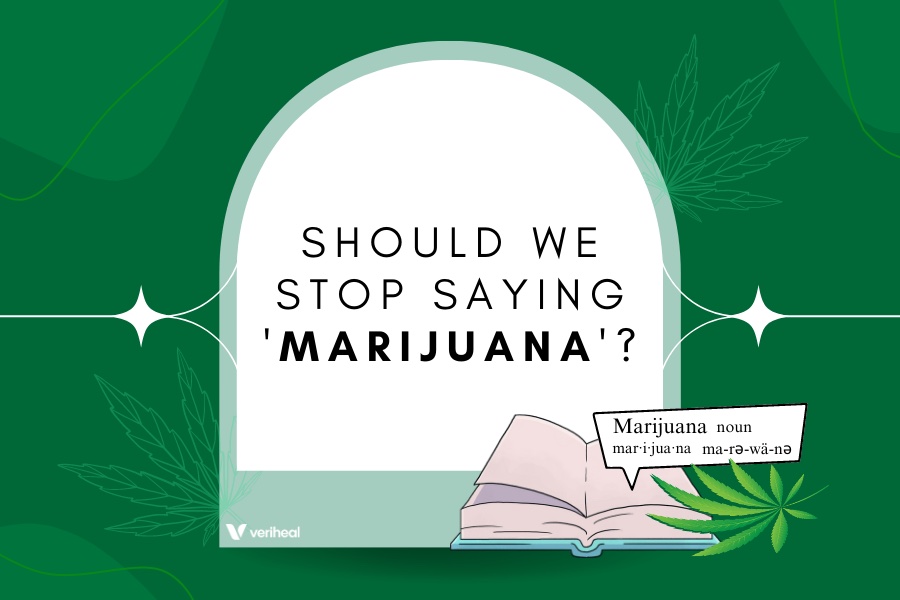“Weed,” “pot,” “ganja,” “Mary Jane,” and over 300 other slang terms are used to refer to the products of the plant scientifically named Cannabis sativa L. The dominant name used in regulation and policy discourse for the majority of states with legal cannabis is “marijuana,” but controversy over the word’s racist history calls into question whether the term “marijuana” should fall out of use.
The word “marijuana” originates from the Mexican-Spanish term “marihuana” or “mariguana,” and the earliest record of its usage dates back to the 19th century in Mexico. The word has authentic indigenous Mexican heritage with valid cultural and historical significance. Given the cultural history of the name, it seems like it wouldn’t be racist to keep calling your favorite plant “marijuana.” However, the story becomes more complicated when we examine the word’s problematic history in the United States during the 1930s and through the continuing legal war on drugs.
The Word ‘Marijuana’: ‘The Devil’s Weed’
Throughout the 19th century, cannabis plants were grown and used by white Americans under the name “hemp,” or in the psychoactive form, “cannabis.” It wasn’t until the rise of efforts to illegalize the drug that it took on names with negative connotations, such as “murder weed” or “the devil’s weed.”
Beginning with the Mexican Revolution in 1910, the U.S. saw an influx of tens of thousands of Mexican immigrants in the southwest. Anti-drug campaigners exploited escalating anti-Mexican immigrant prejudices by adopting the Spanish word “marijuana” to frame the drug as something foreign and threatening.
The prohibitionist crusade’s most notorious figure was Henry Anslinger, the director of the Federal Bureau of Narcotics from 1930-1962, who set out to place a federal ban on cannabis in the 1930s. Anslinger’s propaganda relied largely on racist narratives, and in his testimony before Congress calling for the federal prohibition of cannabis, he claims, “Most marijuana smokers are Negroes, Hispanics, Filipinos and entertainers. Their satanic music, jazz and swing, result from marijuana usage.” The term was meant to frighten “white” Americans because of its association with outsider invasion and existing xenophobic anxieties.
Why You Should Get Your Medical Marijuana Card
Veriheal has satisfied millions of patients nationwide by giving them access to these benefits
- Larger purchase limits
- Peace of mind
- Enhanced legal protection
- Access to higher potency strains
- Save up to 25% on cannabis purchases
- Skip the line at the dispensary
Propagandists made it seem like cannabis was a dangerous drug that caused people to become violent, and these descriptions consequently became associated with brown and black people who were disproportionately framed as users of the drug. This is why many people see the word “marijuana” as a racist term for cannabis. The term was used not only to demonize the plant in American propaganda in the early days of cannabis prohibition but also to marginalize and criminalize the non-white people who were stereotyped as users of the plant’s derivatives.
Whitewashing a Plant’s Heritage
However, some say that promoting the erasure of the word “marijuana” whitewashes the cultural history of Cannabis sativa L. Use of the word “marijuana” to give the derivatives of the cannabis sativa plant negative connotations does not necessarily make the term “marijuana” inherently racist. In fact, by asserting that “marijuana” is a racist word, we erase the history of the word’s usage that preceded anti-drug propaganda. If we assert that the word “marijuana” is racist, the white history of misusing the word “marijuana” comes to replace the Mexican cultural history from which the word was appropriated.
Moreover, switching to the more “scientific” term “cannabis” implies the superiority of the white-dominated scientific tradition over the non-white cultural practices associated with the plant. When we assign “cannabis” the status of being the “proper” term, we perpetuate the ideology of white epistemic authority that has historically served to undermine non-white traditions.
For some people of Mexican heritage, the word “marijuana” represents the cultural traditions associated with cannabis flowers, such as indigenous practices, popular culture, and folk medicine. The term “marijuana” signifies the value of Mexican contribution to global cannabis culture, and disposing of the term is potentially disrespectful to the communities and cultures that share a deeply historical relationship to the plant.
The Power of Words
The word “marijuana” has a complicated history, and the problem of whether or not it should remain in the cannabis lexicon doesn’t seem to have a clear-cut answer. Perhaps it should be reserved for use by certain individuals. Perhaps it should be considered inappropriate in some contexts but not others. Or perhaps we should judge the appropriateness of the word by the intent of the user.
Regardless of your support for or opposition to using the name, it is important to consider the history associated with “marijuana,” because it serves as a reminder that our words can be powerful. A word can have significant consequences, such as preserving cultural values or promoting racism. Debates about nomenclature aside, at least it is clear that whether we prefer “chronic,” “bud,” “reefer,” or the controversial “marijuana,” we are all ultimately connected by a shared enthusiasm for a very special plant.
Author, Share & Comments








